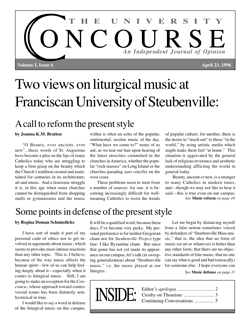Thomism
by Courtney Scharfe
The discussion of Thomism and phenomenology is both insightful and helpful.
It remains to be said that what Thomas teaches is simply more true, more in accord with the grandeur of reality, than is Phenomenological teaching.
In his Metaphysics (IV, 4) Aristotle says: “it is impossible that there should be demonstration of everything (there would be an infinite regress, so that there would still be no demonstration.)” In the case of Thomism and phenomenology, it is true that Thomas sounds the depth of creation’s ontological splendor, while the phenomenologist does not. This truth cannot be demonstrated to infinity; it must be perceived by the intellect.
Courtney Scharfe (MA Philosophy)


